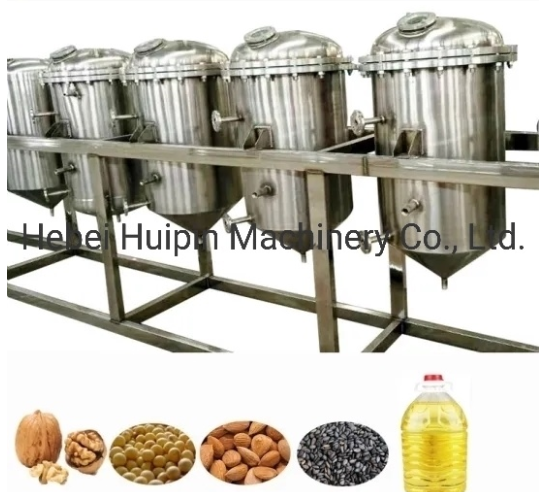វិច្ឆិកា . 05, 2024 07:46 Back to list
cottonseed oil refined machine
The Importance of Cottonseed Oil Refining Machines
Cottonseed oil, derived from the seeds of cotton plants, has gained significant popularity in the food industry due to its favorable properties and health benefits. As demand for cottonseed oil continues to rise, the importance of cottonseed oil refining machines cannot be overstated. These machines are essential in ensuring that the oil produced is of high quality, safe for consumption, and suitable for various culinary applications.
Understanding Cottonseed Oil
Cottonseed oil is often classified as a vegetable oil and is widely used in cooking, frying, and as an ingredient in salad dressings and margarine. It is recognized for its light flavor, high smoke point, and nutritional profile, which includes essential fatty acids and vitamin E. However, raw cottonseed oil contains residual chemicals and impurities that need to be removed to make it suitable for human consumption. This is where refining processes come into play.
The Refining Process
The refining of cottonseed oil generally consists of several stages degumming, neutralization, bleaching, and deodorization
. Each stage employs specialized equipment designed to remove specific impurities and improve the oil quality.1. Degumming This first step involves the removal of phospholipids and other impurities. A degumming machine typically uses water or acid to separate these unwanted materials from the oil. The effectiveness of this process largely depends on the quality of the degumming equipment.
2. Neutralization Once degumming is complete, the oil undergoes neutralization to eliminate free fatty acids, which can lead to off-flavors. In this stage, neutralization machines apply caustic soda to react with the fatty acids, making them soluble. It is crucial that this process is controlled to ensure the neutralized oil meets industry standards.
3. Bleaching After neutralization, the oil is subjected to bleaching processes that remove pigments and further impurities. Bleaching machines usually utilize adsorbents like activated clay or carbon, ensuring the oil achieves a desirable color while meeting food safety regulations.
cottonseed oil refined machine

4. Deodorization The final step is deodorization, which involves heating the oil under vacuum conditions to eliminate any remaining odors. Deodorization machines are critical in producing odor-free oil, which is particularly important for consumer acceptability and product quality.
The Role of Technology
As the demand for quality cottonseed oil increases, so does the need for advanced refining machines. Recent technological advancements have enabled manufacturers to produce more efficient refining equipment. Modern machines enhance yield, minimize energy consumption, and improve overall processing times. Automation has also become a defining trend in refining operations, allowing for better control over each step of the process, reducing human error, and increasing safety.
Furthermore, innovations in refining technologies have led to the development of eco-friendly refining methods. For instance, some machines now use less harmful solvents and are designed to reduce waste, contributing to sustainable production practices. This is crucial in a world increasingly conscious of environmental issues.
Market Outlook
The global market for cottonseed oil is expanding, driven by rising health consciousness among consumers and the increasing use of vegetable oils in various food products. Consequently, investing in efficient cottonseed oil refining machines can provide competitive advantages to producers. By ensuring high-quality output and adhering to health and safety regulations, businesses can better cater to consumer demands.
Conclusion
In conclusion, cottonseed oil refining machines play an instrumental role in the production of high-quality cooking oil. The multi-step refining process they facilitate ensures that the oil is safe for consumption, has a pleasant taste, and meets market requirements. As technology continues to evolve, the efficiency and effectiveness of these machines will only improve, further supporting the growing demand for cottonseed oil in the global market. As producers invest in advanced refining equipment, they not only enhance their operational capabilities but also contribute to better food safety and quality in the industry. The future of cottonseed oil is promising, and the refining process lies at the heart of this valuable commodity's success.
-
Premium Black Seed Oil Expeller - High Efficiency Cold Press Oil Machine
NewsJul.31,2025
-
Oil Processing Equipment - High-Efficiency Flaking Machine
NewsJul.25,2025
-
High-Efficiency Peanut Oil Refined Machine for Quality Oil Production Leading Exporters & Companies
NewsJul.08,2025
-
High Efficiency Sunflower Seed Oil Press – Leading Cooking Oil Press Machine Factories & Suppliers
NewsJul.08,2025
-
High-Efficiency Soybean Oil Press Machine – Leading Exporters & Reliable Companies
NewsJul.07,2025
-
High-Efficiency Seed to Oil Extractor – Reliable Extraction Machinery for Your Business
NewsJul.07,2025
